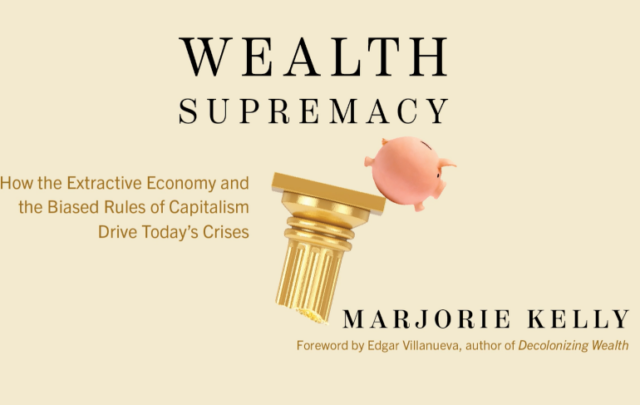My recent piece on the cost of tuition at the Friends Seminary in Manhattan has gotten enough play to warrant a response. So here goes….
So far, much of what I have read in response to “The High Cost of Simplicity, Angry Quakers, and the Fallacy of Neutral Money” has taken the Friends Seminary and its tuition as an inevitable, if unfortunate, result of living in a hyper-capitalist society. I take issue with this.
First, I’m not a Quaker, and thus am not here to debate the tenets of the Quaker tradition and how best to adhere to or make manifest the nuances of the faith, as inspiring as it is. What I am interested in, however, is the intersection of community-oriented spiritualities and capital. Not even capitalism, but the rub of commercialism and spirit and how apologists defend where the two merge. So for me this discussion is, like, sun on a Sunday—welcome.
Introducing a Punk Ethos
Playing in indie/punk bands all my life, I have come to understand (at least) one thing: When confronted with a situation whereby a person or group’s ethics will be seriously compromised, that is, altered beyond the scope of acceptability, I have found it best to find ways setting up alternative spaces so all can continue to play and work in a meaningful and inspiring way. In effect, create a temporary autonomous zone.
Now, what do I mean by that?
For example, if you’re a fifteen-year-old kid playing in a punk band and the local club won’t let you play there ’cause you’re considered “under age,” don’t waste your time petitioning the club. Create a new space! Ask your mom if you can have a punk show in her basement. That’s exactly what punks have been doing ever since punk was worth doing, and it is this act of creating alternative spaces that I believe to be the impetus for, dare I say, everything, worth your two cents. Think about it: alternative media sources, independent films, health food stores and CSA’s, the United States of America, every religion, all forms of governance and anti-governance, revelation, revolution, sliced bread—all came from an act of creating new spaces, whether mental, spiritual, or in the world. So why, may I ask, should education not be included in this list?
Perhaps too many people are focusing on the wrong thing. Doug Bennett of The Observatory states in his piece “Simplicity and/or Quaker Education” that “It is difficult to provide a quality education, Quaker or not, inexpensively,” to which I simply ask, is it? Or is it just difficult to provide quality inexpensive education in one of the most expensive neighborhoods in one of the most expensive cities in the world when low tuition may not be the highest priority? I wonder what the priority of the Manhattan Free School, the Brooklyn Free School, the Albany Free School was when they were founded? It seems like someone is finding a way. I KNOW Quakers can too.
However it’s hard to get there when the school in question itself is misunderstood. In his piece “An Ocean of Ink”, Rick Seifert describes the school as “tucked away in lower Manhattan,” which I can only assume means Rick has never been there himself? I mean, if taking up almost half a city block in both directions just around the corner from Union Square Park at 14th and Broadway is “tucked away,” than what would you call this abandoned peep show hidden in the basement of a Times Square T-shirt shop? Nonexistent?
Now, in a way I’m playing devil’s advocate, not to be a pain, but to press the point that what is not being discussed here is options. Steven Davidson of Through the Flaming Sword touches on what I’m talking about in his comment over at Pennmanship:
“The only other alternative is to completely reconfigure the services. Institutions will always fight to survive. So a radical new vision of how to educate or serve the members of a yearly meeting will almost surely come from some other place. Usually, it comes from those who suffer from lack of services and yet have the resources needed to wage a revolution.”
Precisely! The sentiment is of course not without Quaker precedent, ironically coming from none other than the founder of the community of Friends himself:
“George Fox was himself a young adult when he found that no institutions spoke to his condition. He was led to lead a revolution. He turned inward in his search, after looking outward to the institutions around him for what he sought.”
Longstanding institution are often difficult to see passed. I’ve come up against this myself. This is why I am asking that people look for options and when there don’t appear to be any, to look elsewhere. Challenge the tuittions by creating alternative spaces where the tuition is more to your liking. Break out that Crass record and get busy. And then, when I’m in your position, please, remind me of this post.





